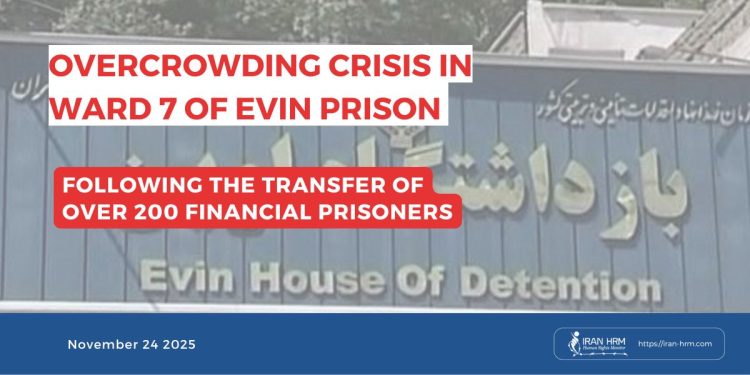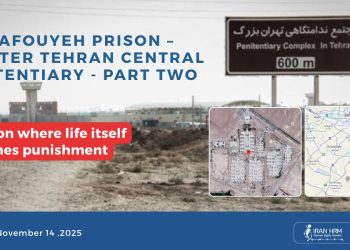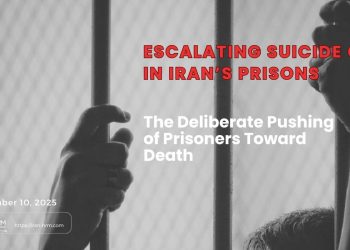Reports indicate that the sudden transfer of more than 200 financial prisoners from Fashafuyeh Prison to Ward 7 of Evin Prison has created an unprecedented crisis inside the facility. The move, carried out without any expansion of basic infrastructure or services, has resulted in extreme overcrowding, severe shortages of sanitation facilities, restricted living space, and heightened psychological and physical pressure on prisoners. Political prisoners held in this ward are now exposed to intensified risks due to the mixing of categories and the collapse of minimum living standards.
Unplanned Mass Transfer and Rapid Overcrowding
Informed sources confirm that Evin Prison officials, including the prison director, transferred the group of more than 200 prisoners without providing any additional resources. Although each hall of Ward 7 was originally designed to house around 200 prisoners, some halls now hold more than 700. This extreme overcrowding has pushed living conditions to an unbearable level, placing political prisoners under escalating physical and psychological strain.
Structure of Ward 7 and Disrupted Prisoner Classification
Ward 7 consists of eight sections historically designated for financial offenders. Over the past years, however, political prisoners, security‑related detainees, and individuals with drug‑related addictions have also been placed in this ward, contrary to domestic regulations and international standards. Halls 1, 2, 3, 4, 5, 6, Hall Jihad (Hall 11), and Hall 12 are all currently operating far beyond their intended capacity. Hall 12—normally used for political prisoners and individuals accused of fraud or forgery—has become unable to manage the influx of new prisoners.
Severe Shortages and Degrading Living Conditions
Reports from within Ward 7 illustrate the scale of the crisis:
– Sanitary facilities and showers are insufficient, leading to long queues.
– Rooms are overcrowded, forcing many prisoners to sleep on floors, hallways, and near toilets.
– The common room (“chiragh‑khaneh”) is no longer usable due to lack of space.
– Outdoor time and movement have been reduced to the minimum.
– Prisoners face shortages of hot water, medication, and basic medical care.
These conditions, combined with psychological stress caused by overcrowding, have made Ward 7 one of the most critical areas inside Evin Prison.
Violation of International Standards and Legal Obligations
The mass and unplanned transfer of prisoners violates both Iranian regulations and multiple international human rights instruments:
– ICCPR Article 10: obligation to separate political prisoners from those convicted of general or financial crimes.
– ICCPR Article 7: prohibition of degrading or inhuman treatment.
– Nelson Mandela Rules 8, and 11–17: requirement to ensure adequate living space, sanitation, and access to essential facilities.
The overcrowding, unsanitary conditions, and denial of basic needs constitute systematic violations of the rights and dignity of prisoners under the ruling regime in Iran.







